Sorted by date Results 51 - 75 of 125
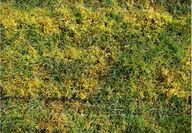
Many homeowners struggle with moss that invades lawns as winter rains provide just the right conditions for its growth. “The most frequent wintertime question I receive regarding lawn maintenance is, ‘How do I get rid of moss?’” said Alec Kowalewski, turf grass specialist for Oregon State University Extension Service. To answer that question, Kowalewski and Brooke Edmunds, a horticulturist with Extension, developed a publication and video on Managing Moss in the Landscape in Western Oregon....
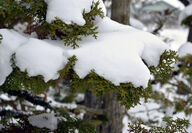
As freezing weather moves in, gardeners may be worrying about how to protect their plants from the cold. Experts with Oregon State University Extension Service, recommend several ways to guard your landscape from frigid conditions. * Though snow can act as excellent mulch on the ground, it can also weigh down the branches of shrubs with frail structures such as arborvitae, boxwoods, young rhododendrons and azaleas. Every two to three days, knock the snow off branches and wrap rope around the...
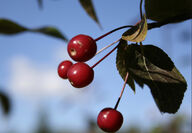
As cities get bigger, gardens get smaller and large trees no longer make the cut. No worries. The plant world teems with appropriately sized trees. The best place to start a search is in your own backyard. As the saying goes: "Right plant, right place." Decide where you want a tree first and then find one that fits the site, said Chris Rusch, president of the Douglas County chapter of the Oregon State University Extension Service Master Gardener program. "You can't just go buy a tree and then...
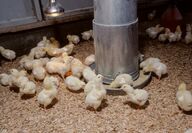
Care for chickens correctly and they’ll reward you with cartons full of fresh eggs. Get it wrong and the eggs stop coming. The good news is that getting it right isn’t difficult, said Jim Hermes, a poultry specialist for Oregon State University Extension Service. Give them appropriate feed, water and shelter from the worst weather of winter and you’ve covered the bases. Make bagged feed from feed stores the food of choice. It’s formulated for each stage of life – baby, adolescent, and adult – w...
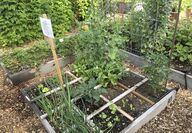
It's a lucky gardener who digs into great soil right off the bat. Most often, it takes years of adding organic material to bring it up to snuff. There is a shortcut, however. For areas of the garden where you need the best soil, filling a raised bed is a quick solution. "Raised beds are great, especially in western Oregon where gardeners deal with mud and rain," said Brooke Edmunds, a horticulturist with Oregon State University Extension Service. "In urban areas, we typically have soils of poor...
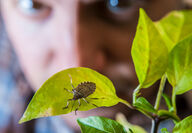
The amount of invasive brown marmorated stink bugs in 2022 tops anything that was seen in Oregon for at least five years and poses a serious threat to Oregon crops and garden plants, according to Oregon State University Extension Service's orchard crop specialist. Nik Wiman, an associate professor in the College of Agricultural Sciences, said fruit and vegetable crops in the Willamette Valley have been affected. "It's unusual for brown marmolated stink bugs to feed on fruit and vegetable...
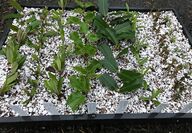
Snipping some cuttings from the garden will produce your own private nursery of plants by spring. Whether you plant the results of your "snip and stick" project or give them away, propagating by cuttings can be a rewarding process. Although some sources of information can be intimidating, Neil Bell, a horticulturist for Oregon State University Extension Service, has good news. "I do lots of them at home," he said. "I don't use a greenhouse or even bottom heat. What that means is that the...
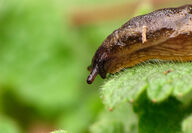
Just as we begin to think about wrapping things up in the garden for the season, slugs slither out of their homes underground to lay their eggs for next year. That means it's time again to slug it out with one of the gardener's most familiar, frustrating, and certainly slimiest pests. "What slugs want is a place that's warm and moist," said Claudia Groth, an Oregon State University Extension Service Master Gardener. "That's why spring and fall are when they're most active. They'll be coming out...

Holding onto poinsettias after the holidays is good for the pocketbook but hard on the ego when you can't get them to color up the next year. To get you through the grief, Ross Penhallegon, a horticulturist with Oregon State University, gives the gift of good advice. Now's the time to start coaxing poinsettias back into color and bloom for December. Sensitive to day length, the poinsettia needs a certain minimum amount of darkness each 24-hour period to stimulate blooming in the winter. With...
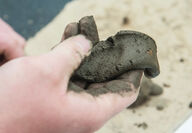
When you walk about your yard on a wet day, do your shoes stick in the mud? Could you make ceramic pots out of the soil in your garden? If the answers are yes to both, odds are you have clay soil, one of the biggest challenges for the home gardener. Clay soils in the Willamette Valley are the result of geologic actions that took place during the end of the last ice age – some 10,000-14,000 years ago, said Linda Brewer, senior faculty research assistant in Oregon State University's College of A...
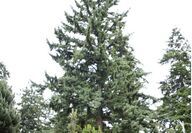
Watching trees turn bewitching shades of orange, red and yellow is part of the magic of autumn, but seeing the needles on conifers fade to yellow and fall to the ground can be unnerving. Such botanical behavior is natural, said Paul Ries, urban forestry specialist for the Oregon State University Extension Service. Evergreen conifers shed needles just as deciduous trees lose leaves; it just happens over a longer period of time. "The difference is that with deciduous trees they do it all at once...
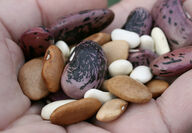
As the garden winds down and you pick the season's last vegetables let some plants go to seed and harvest them for planting next year. "Saving seed can be really fun and is a great way to learn about plants," said Weston Miller, a horticulturist with Oregon State University Extension Service. "If you choose the right varieties, you can keep them going year after year without buying them again. The key to saving seeds is selecting open-pollinated or heirloom plants, which produce offspring with...
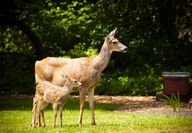
A garden is like a box of bonbons to deer, and homeowners fill it with the candy they love most. "Deer are looking for the highest quality food and our yards often offer the best smorgasbord," said Dana Sanchez, a wildlife specialist for Oregon State University Extension Service. "When taking loving care of our plants – watering well and fertilizing – we're producing a really superior plant compared to what's in the natural environment. They are more tender and have more nutrition and water con...
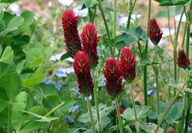
If you're not acquainted with cover crops, here's the rundown: These hardworking plants can add organic matter and aerate the soil, protect it from compaction caused by rain, suppress weeds, and reduce erosion - some even add nitrogen to the soil, according to Nick Andrews, small farms specialist for the Oregon State University Extension Service. Not a bad deal for an almost no-maintenance plant. All that's needed is to seed it in fall, water it a couple of times until the rains start, leave it...

Lawns languish in the heat of summer unless showered with the water they require to thrive. But not to worry, the grass isn't dead. Come fall when the rains start again, grass greens up quickly, said Alec Kowalewski, turf specialist for Oregon State University's Extension Service. While letting your lawn go dormant in summer isn't a bad thing - especially with concern about water shortages - lack of irrigation does allow pesky weeds to gain a foothold, he said. And regular wear and tear can...
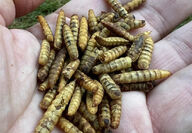
Most people shudder when they see maggots in their bin composter or compost pile. They may be startling in their appearance and movement, but they won't hurt you or the compost. In fact, they play a role in breaking down plant and animal tissues. Often, these maggots are the larval life stage of compost-dwelling soldier flies, according to Linda Brewer, Oregon State University Extension Service soil scientist. This European insect (Hermetia illucens) is found everywhere in North America. They...
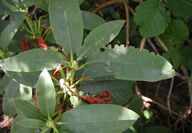
Rhododendrons say spring as loudly as football says fall. Both have fervent fans and enemies staring them down. The teams that feed on rhododendrons – called black root weevils – are tiny compared to the helmeted players at each end of a football field, but the damage they do aggravates gardeners who can't figure out a good defense. Wouldn't you know it, rhododendrons are a favored target of black vine root weevils. However, there are several weevil pests, including strawberry root weevils. All...
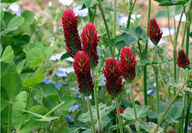
No one wants to think of harvest's end as the garden reaches its peak, but now's the time to plan for cover crops. If you're not acquainted with cover crops, here's the rundown: These hardworking plants can add organic matter and aerate the soil, protect it from compaction caused by rain, suppress weeds, and reduce erosion - some even add nitrogen to the soil, according to Nick Andrews, small farms specialist for the Oregon State University Extension Service. Not a bad deal for an almost...
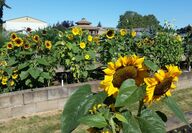
As a child Harry Olson tended sunflowers in his parent's garden, watching them sprout and stretch twice as big as his small frame. For more than 65 years since he's not forgotten the experience. He loved the sunny yellow blossoms and still does. But these days his affection has expanded to include a whole bouquet of new sunflowers. "Back then sunflowers were all the same," said Olson, an Oregon State University Extension master gardener. "Over the years, when I'd get seed catalogs and poke...

Though the first half of July was determinedly unlike summer, saving water is a keystone to responsible gardening no matter the weather. "We have a role to play in preserving our natural resources," said Amy Jo Detweiler, a horticulturist with Oregon State University Extension Service. "A water-wise garden is one of the ways to do that regardless of the amount of rainfall where you live." For instance, in the high desert around Bend where she lives, rainfall during the growing season from May...
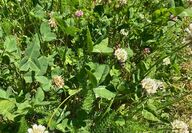
To support pollinators, people have turned to creating eco-friendly spaces around their homes, including replacing their grass lawns with flowering plants. That's no easy task, according to Carolyn Breece, Oregon State University Extension Service faculty research assistant in the OSU Honey Bee Lab. Since 2016, Breece has researched the best flowering lawn substitute. It turns out transitioning from an all-grass lawn to a flowering lawn is challenging. "The first year it was beautiful," Breece...
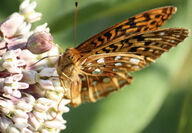
Fragile, beautiful, and fascinating, butterflies flutter their way into our gardens and seem to just as quickly wing their way out. It isn't because they necessarily want to leave, said Heather Stoven, an entomologist with the Oregon State University Extension Service. Rather they don't find what they need to park themselves permanently. As detailed in Extension's publication The Wildlife Garden: How to Create a Butterfly Garden, butterflies require specific room and board to have their needs...
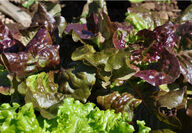
As we settle in at the groaning table of summer's harvest, savvy gardeners pause long enough to consider the coming season. "Most folks are familiar with and love summer vegetables, but if you want to maximize your food and nutrition, then growing fall crops is a great strategy," said Weston Miller, a horticulturist with Oregon State University Extension Service. The window of opportunity for planting those crops is short – as daylight decreases, it becomes harder and harder to hit it right. S...
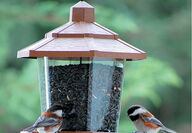
Even in summer when there's plenty of sustenance from plants and insects, birds welcome the variety of seeds and nuts offered in bird feeders. When putting out a banquet of supplemental food, high quality is essential, said Dana Sanchez, a wildlife specialist for Oregon State University Extension Service. Mixes with red millet, golden millet, flax seed, rape seed, and oats are a waste because birds will just kick those fillers out of the feeder, where they'll fall on the ground and attract...
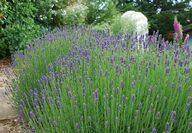
As the warmer weather returns, it's a good idea to evaluate your garden for the upcoming summer. Take a lesson from the 2021 historic heat dome and be prepared to help plants through hot and dry weather as the season progresses. Here are some tips from Oregon State University Extension Service experts for preparing for heat and drought. For more, read Heat wave in the garden: how to identify and prevent heat stress in plants by Nicole Sanchez, OSU Extension horticulturist. Water your landscape...